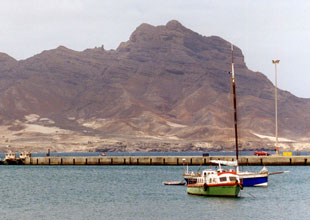
Flickr/<a href="http://www.flickr.com/photos/paulk/3080299313/">Paul Keller</a> (<a href="http://www.creativecommons.org">Creative Commons</a>).
A coalition of major media organizations is on the verge of suing the Pentagon and the Obama administration over press limitations at Guantanamo Bay, a lawyer for the news outlets said Tuesday.
David Schulz, who represents the Miami Herald, the Associated Press, Dow Jones, the New York Times, Reuters, and the Washington Post, said he was “hopeful” that the media companies could work out their differences with the Defense Department in a meeting scheduled for next week. But, he said, “some press organizations are at the point where they’ve kind of reached the end of the line” in terms of patience with the restrictions imposed on reporting from the detention camp.
Schulz made the comments at a National Press Club event featuring Carol Rosenberg, the Miami Herald reporter who is widely considered to be the dean of the Guantanamo Bay press corps, having visited the prison dozens of times since it opened in 2002. Rosenberg was one of four reporters banned from Guantanamo in May for reporting the already-public name of a witness in Canadian detainee Omar Khadr’s military commission hearing. (Rosenberg and two of the others were reinstated earlier this month.)
Media organizations have complained for years about press restrictions at Guantanamo. But it’s clear that Rosenberg’s controversial banning from the prison may have been the last straw. “After 9/11 the press was reluctant to challenge the military,” Schulz said. “There are resource constraints, and it costs money to go to court. But this was such a clear-cut case of someone misunderstanding their authority that it really did catch the attention of the major media organizations.” Now the money seems to be there, and top mainstream media outlets are on board.
Statutory law and the Constitution are both fairly clear on press freedom at Guantanamo. The Military Commissions Act expressly says that the proceedings are supposed to be open to the public—and, of course, the press. More important, the Supreme Court has held that reporters have a first amendment constitutional right to legal proceedings and certain types of government documents. In fact, the Rosenberg ban—which also affected the Toronto Star’s Michelle Shephard, the Globe & Mail’s Paul Koring, and Canwest’s Steve Edwards—was “so clearly across” that line, Schulz said, that it forced Defense Department lawyers to negotiate rule changes with the media “because they wouldn’t want to defend this in court.”
The media organizations Schulz represents are seeking several basic changes to the military’s press procedures at Gitmo. First and foremost, they want the Pentagon to reject the sort of restrictions that got Rosenberg banned. They want a permanent exception allowing reporters to publish information that’s already public. They also want to require a judge to make a factual finding that confidentiality is required before reporters are banned from reporting any specific item of information. They also want the Pentagon to establish a formal process—including fact findings and notification—for any future banishing of reporters from Gitmo. Finally, they want the military to stop deleting photographs taken at Gitmo without giving reporters and photographers the opportunity to challenge the censorship of the photos. “These procedural safeguards are necessary to… bring the Ground Rules into compliance with the Military Commissions Act and the First Amendment,” Schulz wrote in a letter to the Pentagon earlier this month.
Even if Schulz gets the Pentagon to agree to these changes, reporting from Gitmo will still be a struggle. In her presentation, Rosenberg detailed many of the other indignities and inconveniences that bedevil Gitmo reporters. For example, just about any military personnel at Gitmo can tell reporters and photographers not to report or photograph things. That means the guidelines about what’s appropriate change from day to day and from week to week. That’s clearly “illegal,” Schulz says. “You can’t delegate to… anybody who’s a part of JTF Guantanamo personnel the authority to say you can or can’t do anything.”
Sometimes, the restrictions at Gitmo can seem Kafkaesque. Reporters are banned from seeing a video that’s already on YouTube because they don’t have the appropriate security clearance. They’re forbidden from photographing areas they’ve already photographed, and told those areas are “never” photographed—even though they have the photos to prove otherwise. They’re prohibited from hearing a description of the psychotropic drugs given to a detainee during interrogation—because the suspected terrorist supposedly has rights under the Health Information Privacy Act (but not the right to a civilian trial, of course).
The list goes on. Reporters can only write up stories or interview sources on the phone if a military minder is within earshot, Rosenberg said. “You can go to court only in the custody of a military public affairs officer.” And if someone has to go to the bathroom, and there’s only one soldier minding the reporters, then all the reporters have to go to the bathroom. And you often can’t talk to the military commission lawyers—even during breaks in the trial, even when they want to be quoted.
Members of the media have also been subjected to gradual downgrades in conditions as the years have gone by. They’ve gone from staying in hotels to living in tents, from being able to book their own flights to having to go on the Pentagon’s charter. And even though the military knows that there are often vegetarians and Muslims in the media, somehow the press seems to end up being fed a bunch of pork pizzas. (Yes, that really happened.)
In short, the press has a lot to complain about. And despite President Barack Obama’s transparency pledges and promise to close Guantanamo, it “doesn’t seem like anything has changed in the past two years,” Schulz said.








